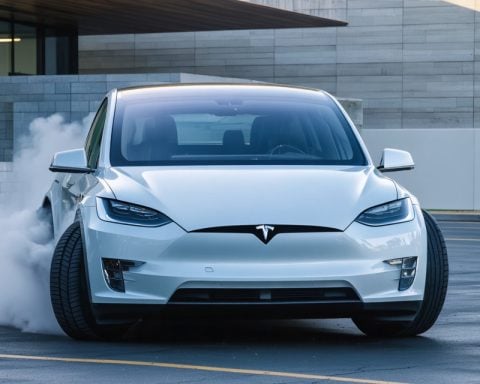The increasing popularity of bicycles, particularly electric ones, in urban areas is undeniable. In Madrid, one local cyclist reflects on their journey over the last eight years, expressing how their transition to electric bikes has been a game changer, especially when navigating the city’s steep inclines.
Despite the monthly subscription fee of €10 for BiciMad electric bikes, which is more expensive than similar bike-share programs in other cities, the convenience was worth it until the cyclist considered ownership. With an annual expenditure of €120 for BiciMad, investing in one’s electric bike, such as the Cecotec Flexy model priced at €549, becomes an appealing option.
After factoring in potential subsidies from the Madrid City Council, which could refund 50% of the bike’s cost if it meets specific requirements, the price drops significantly to €275. This makes ownership more affordable and practical over time.
It’s also notable that other retailers like Decathlon offer similar bikes with similar rebate opportunities, making the choice even more enticing. Maintenance costs, while important to consider for any bike owner, tend to remain manageable with regular use and basic upkeep.
Moreover, as cities continue to invest in cycling infrastructure and incentivize biking through potential tax breaks for businesses encouraging bike commutes, the landscape for cyclists is set to become even more favorable.
Revolutionizing Urban Mobility: The Rise of Electric Bikes in Madrid
The Growing Trend of Electric Bicycles
As urban areas become increasingly congested, the rise of electric bicycles (e-bikes) is transforming the way people commute. Cities like Madrid are at the forefront of this movement, with local initiatives promoting cycling as a sustainable and efficient mode of transportation. The popularity of e-bikes has surged, offering riders a viable alternative to traditional forms of transport, particularly in hilly regions.
Why Choose an Electric Bike? Benefits and Use Cases
Electric bikes provide numerous advantages that appeal to a wide range of users:
– Effortless Commuting: E-bikes make it easier to tackle steep inclines and long distances without exerting excessive physical energy.
– Cost-effective: While the initial investment might be higher than standard bicycles, the long-term savings on transportation costs make e-bikes appealing.
– Environmental Sustainability: E-bikes produce zero emissions, contributing to cleaner air and reducing the urban carbon footprint.
– Health Benefits: Cycling remains a form of exercise, allowing riders to maintain physical fitness while commuting.
Ownership vs. Rental: Making the Right Choice
When considering the cost-effectiveness of owning an electric bike compared to renting through bike-share programs such as BiciMad, potential buyers should weigh several factors:
– Monthly Subscription Fees: For example, BiciMad charges €10 per month, leading to annual costs of €120. In contrast, purchasing a bike such as the Cecotec Flexy at €549 can be economically viable, especially with subsidies.
– Subsidies and Rebates: Madrid City Council offers incentives that can refund 50% of eligible bike purchases, reducing the cost to €275. This financial assistance makes ownership more accessible.
– Retail Options: Stores like Decathlon not only provide competitive pricing but also may offer similar rebates, increasing the appeal of personal ownership.
Maintenance and Upkeep: A Quick Overview
When it comes to maintenance, owning an electric bike is manageable:
– Regular Upkeep: Routine maintenance, including tire inflation and brake checks, can enhance the bike’s longevity and performance.
– Cost Management: Expense tracking for repairs and periodic servicing is essential for budgeting, yet the overall costs typically remain low for active cyclists.
Future Trends and Innovations in Urban Cycling
The push for electric bikes is coupled with advances in cycling infrastructure and urban policy changes:
– Improved Infrastructure: Cities are investing heavily in dedicated bike lanes, making cycling safer and more attractive.
– Incentives for Businesses: Tax breaks and benefits for companies supporting bike commuting will encourage more people to adopt cycling as a primary mode of transportation.
– Technological Innovations: Future developments in battery life, lightweight materials, and smart technology integration are expected to enhance the e-bike experience even further.
A Sustainable Choice for the Future
As the trend towards electric biking continues to grow, many urban areas are likely to see an increase in bike usage, reduced traffic congestion, and improved air quality. The combination of personal health benefits, environmental sustainability, and economic advantages positions electric bikes as a transformative aspect of modern urban transportation.
For more information about cycling, infrastructure, and sustainability initiatives, visit Madrid City Council.


















